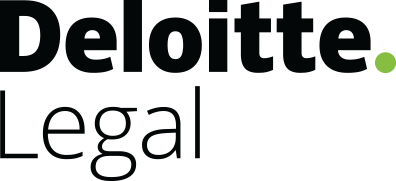Partnerblog
Interim measures remain fashionable
 This blog post discusses three recent decisions on interim measures, the recent publications of the BCA and the postponed entry into force of the abuse of economic dependency, allowing you to catch up with key developments in Belgian competition law
This blog post discusses three recent decisions on interim measures, the recent publications of the BCA and the postponed entry into force of the abuse of economic dependency, allowing you to catch up with key developments in Belgian competition law
Interim measures are here to stay
With already three decisions on interim measures in 2020, the decisional practice of the Belgian Competition Authority confirms that this type of decision is popular. This should not come as a surprise, as on 16 October 2019 even the European Commission adopted a decision imposing interim measures on Broadcom for the first time in nearly two decades. Unlike the European Commission, the BCA uses its competence under Article IV.71 of the Code of Economic Law to impose interim measures relatively frequently. With quickly evolving (digital) markets, interim measures will become an even more important tool than before.
In a nutshell, interim measures require a preliminary, i.e. prima facie, assessment of the alleged competition law infringement that was already under investigation. In addition, urgency as well as serious, immediate and irreparable (difficult to repair) harm must be demonstrated. Although the threshold for finding a prima facie infringement is lower, the requirement of demonstrating serious, immediate and difficult to repair harm sometimes remains a significant obstacle.
Interim measures may be far-reaching and typically include a cease-and-desist order to suspend the prima facie anticompetitive practice and, depending on the case at hand, a supply obligation or an obligation to review contractual terms and conditions in order to comply with competition law.
On 16 March 2020, the BCA rejected a request for interim measures filed by DPI Imprimerie Digitale against HP Belgium and HP Industrial Printing Solutions Europe for an alleged prima facie abuse of a dominant position.
On 23 January 2020, the BCA imposed interim measures on the Belgian Bumper Pool Association (VZW Belgische Golfbiljart Bond) concerning the bumper pool balls that may be used during competitions and matches organised by the Belgian Bumper Pool Association. On 10 January 2020, the BCA imposed interim measures on Orange and Proximus, regarding the joint venture to share the mobile radio access networks.
BCA May offensive
On 14 May 2020, the BCA published its annual report of 2019, including its enforcement priorities for 2020 as previously published on 26 March 2020.
The BCA only adds the digital economy as a new sector in comparison with its enforcement priorities of the previous year. With COVID-19 not yet behind us, it may be that other priority sectors listed in the publication will attract even more attention, such as the distribution sector and its suppliers, as well as the pharmaceutical sector.
The BCA also adopted new leniency guidelines that were published on 22 May 2020 in the Belgian Official Journal. The leniency guidelines replace the former leniency guidelines of 2016 and set out the conditions to obtain partial or total immunity from fines. They apply to undertakings (and associations of undertakings), as well as to natural persons involved in a cartel with regard to immunity from prosecution. Whereas the leniency guidelines do not bring about substantial change, a few clarifications and procedural changes are made.
On 25 May 2020, a notice on the President’s informal opinions was published in the Belgian Official Journal. The notice adapts the wording and references to the new Book IV of the Code of Economic Law that was substantially amended in 2019, and clearly underlines the BCA’s willingness to provide informal opinions on novel issues.
The BCA’s new guidelines on the calculation of fines were also published in the Belgian Official Journal on 25 May 2020. The guidelines adapt the wording and references to the new Book IV of the Code of Economic Law. The methodology followed to calculate the amounts of fines remains unchanged. The European Commission’s guidelines on the method of setting fines remain the key reference for the BCA.
Abuse of economic dependency has not yet entered into force
The provisions on the abuse of economic dependency were initially due to enter into force on 1 June 2020, but their entry into force is delayed by the law of 27 May 2020 (published in the Belgian Official Journal on 29 May 2020). The provisions on abuse of economic dependency will enter into force no later than 1 December 2020.
The law of 27 May 2020 aims to address the legal uncertainty resulting from two laws that amended Book IV of the Code of Economic Law almost simultaneously in 2019 (both published on 24 May 2019 in the Belgian Official Journal). The first amendment introduced the provisions on abuse of economic dependency into Book IV of the Code of Economic Law. The second amendment revamped Book IV in its entirety and did not seem to be consistent with the first amendment. In order to remedy this legal uncertainty, the law of 20 May 2020 confers power upon the King to coordinate both laws.
More Partner Blogs
A new European Commission proposal on foreign direct investment screening: towards greater harmonization?
On June 20, 2023, the European Commission and the High Representative for Foreign Affairs and...
Tirez parti de la technologie juridique pour définir la stratégie KPI de votre service juridique
Optimisez votre service juridique grâce à la technologie afin de gagner en efficacité et renforcer l'impact...
Considerations when contracting about AI-sytems
With the recent approval of the AI Act by the European Parliament in mid-March, it is crucial to...
Drowning in Data? Tactics for Legal Professionals to Conquer the Information Overload
Welcome to the exciting world of increasing laws and regulations, where each choice proves how...
EU enhances consumer rights by banning eco-generic claims and early obsolescence
The EU legislature recently adopted a new Directive aiming to empower consumers through better...

